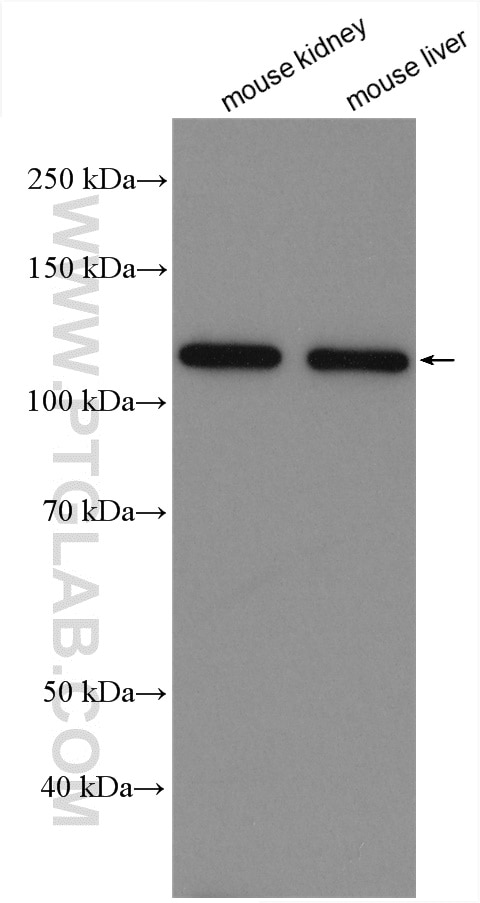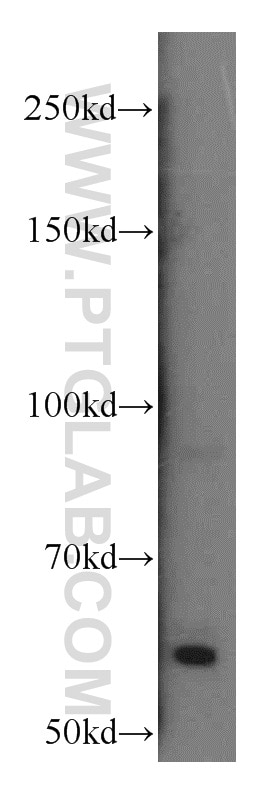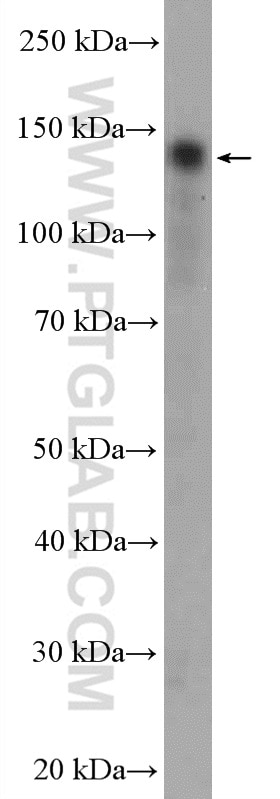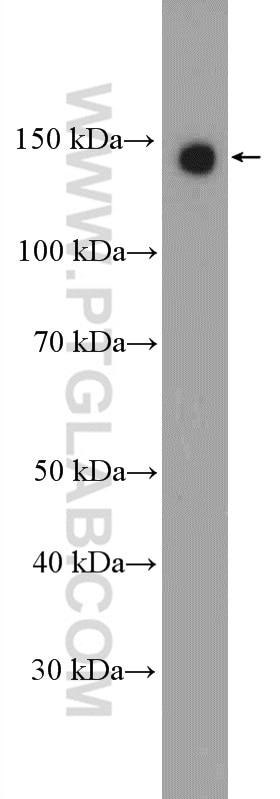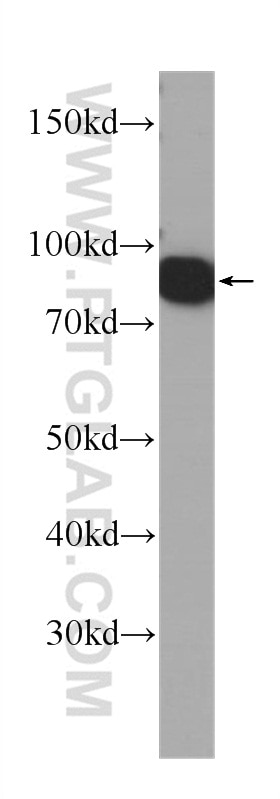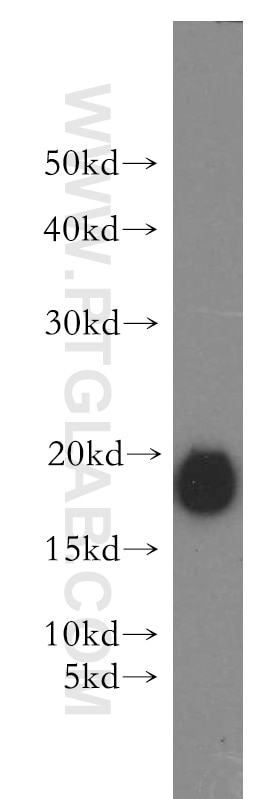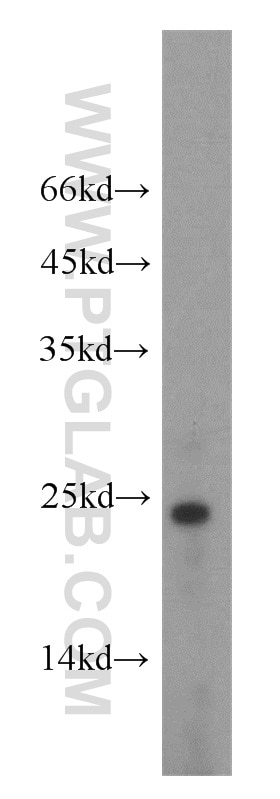- Featured Product
- KD/KO Validated
Calcium Sensing Receptor Polyklonaler Antikörper
Calcium Sensing Receptor Polyklonal Antikörper für WB, ELISA
Wirt / Isotyp
Kaninchen / IgG
Getestete Reaktivität
human, Maus, Ratte und mehr (1)
Anwendung
WB, IHC, IF, ELISA
Konjugation
Unkonjugiert
Kat-Nr. : 19125-1-AP
Synonyme
Galerie der Validierungsdaten
Geprüfte Anwendungen
| Erfolgreiche Detektion in WB | Mausnierengewebe, COLO 320-Zellen, HL-60-Zellen, Jurkat-Zellen, Mauslebergewebe |
Empfohlene Verdünnung
| Anwendung | Verdünnung |
|---|---|
| Western Blot (WB) | WB : 1:2000-1:10000 |
| It is recommended that this reagent should be titrated in each testing system to obtain optimal results. | |
| Sample-dependent, check data in validation data gallery | |
Veröffentlichte Anwendungen
| KD/KO | See 3 publications below |
| WB | See 12 publications below |
| IHC | See 8 publications below |
| IF | See 4 publications below |
Produktinformation
19125-1-AP bindet in WB, IHC, IF, ELISA Calcium Sensing Receptor und zeigt Reaktivität mit human, Maus, Ratten
| Getestete Reaktivität | human, Maus, Ratte |
| In Publikationen genannte Reaktivität | human, Maus, Ratte, Ziege |
| Wirt / Isotyp | Kaninchen / IgG |
| Klonalität | Polyklonal |
| Typ | Antikörper |
| Immunogen | Peptid |
| Vollständiger Name | calcium-sensing receptor |
| Berechnetes Molekulargewicht | 121 kDa |
| Beobachtetes Molekulargewicht | 120-140 kDa |
| GenBank-Zugangsnummer | NM_000388 |
| Gene symbol | CASR |
| Gene ID (NCBI) | 846 |
| Konjugation | Unkonjugiert |
| Form | Liquid |
| Reinigungsmethode | Antigen-Affinitätsreinigung |
| Lagerungspuffer | PBS mit 0.02% Natriumazid und 50% Glycerin pH 7.3. |
| Lagerungsbedingungen | Bei -20°C lagern. Nach dem Versand ein Jahr lang stabil Aliquotieren ist bei -20oC Lagerung nicht notwendig. 20ul Größen enthalten 0,1% BSA. |
Hintergrundinformationen
CASR, also named as GPRC2A, PCAR1, belongs to the G-protein coupled receptor 3 family. Changes in extracellular calcium are thought to modulate a balance between proliferation and differentiation in a variety of cell types. The activity of CASR is mediated by a G-protein that activates a phosphatidylinositol-calcium second messenger system. It has been shown to play a major role in regulating parathyroid hormone secretion and subsequently influencing the calcium concentration of extracellular fluids. In normal primary keratinocytes and breast epithelial cells, proliferation is inhibited and elevated extracellular calcium levels trigger differentiation. Malignant transformations of these cell types are accompanied by a loss of responsiveness to the anti-proliferative effects of elevated extracellular calcium. Several disorders of calcium homeostasis have been linked to mutations in the CaSR. These include familial hypocalciuric hypercalcemia (FHH), neonatal severe hyperparathyroidism (NSHPT), and autosomal dominant hypocalemia (ADHypo). The 60-65 kDa band detected by this antibody might represent a degradation product of CASR (PMID: 15718278).
Protokolle
| Produktspezifische Protokolle | |
|---|---|
| WB protocol for Calcium Sensing Receptor antibody 19125-1-AP | Protokoll herunterladen |
| Standard-Protokolle | |
|---|---|
| Klicken Sie hier, um unsere Standardprotokolle anzuzeigen |
Publikationen
| Species | Application | Title |
|---|---|---|
J Ginseng Res Ginsenoside Rg1 attenuates mechanical stress-induced cardiac injury via calcium sensing receptor-related pathway | ||
Front Pharmacol Calcium Sensing Receptor-Related Pathway Contributes to Cardiac Injury and the Mechanism of Astragaloside IV on Cardioprotection. | ||
Phytomedicine Panaxytriol upregulates CYP3A4 expression based on the interaction of PXR, CAR, HSP90α, and RXRα.
| ||
Front Pharmacol Effects of Sodium Ferulate on Cardiac Hypertrophy Are via the CaSR-Mediated Signaling Pathway. | ||
J Ethnopharmacol Fructus Ligustri Lucidi aqueous extract promotes calcium balance and short-chain fatty acids production in ovariectomized rats. | ||
Acta Pharmacol Sin Astragaloside IV attenuates myocardial ischemia/reperfusion injury in rats via inhibition of calcium-sensing receptor-mediated apoptotic signaling pathways. |
